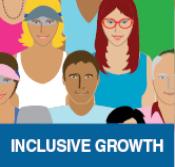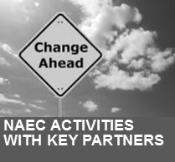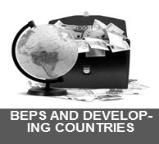KSA
As the post-2015 agenda evolves, the world is at a crossroads in terms of global relations and forms of collaboration. Economic powers are shifting, while at the same time social inequality threatens to destabilise the political and economic outlook for many societies. Many pressing concerns – climate change, health, peace and stability – are universal, and can only be tackled by cross-border collaboration and sharing mechanisms. The KSA continues to reinforce mutual learning through the mainstreaming of development in OECD activities, focusing on strategic thematic issues.
Our 2015 projects provided a facility for further engagement and greater synergies with emerging and developing economies to share knowledge on the design and implementation of policies for inclusive and sustainable development. We focused on three dimensions:
- Strategic: a limited number of key strategic themes which are anchored in the global development discourse taking place in such forums as the G20 and the UN (in the context of the implementation of the Sustainable Development Goals), and are set out in the Strategic Orientations of the Secretary-General.
- Multidisciplinary: a whole-of-OECD approach (i.e. engaging more than one OECD Directorate) in partnership with developing countries and other bilateral and multilateral development organisations.
- Results-focused: generating tangible outcomes (including through creating new processes of policy dialogue and producing substantive reports and policy responses to key challenges developing countries are facing to advance their reforms agenda), ensuring maximum returns in terms of tangible knowledge-sharing results, and that the Organisation’s mission to support the global agenda and collective policy action is effectively delivered.
Click below for more information on the 2015 KSA projects:
 |
 |
 |
|
|
|
|
|
|
Who are we?
Created in January 2013, in partnership with the German Federal Ministry for Economic Development and Cooperation (BMZ) and Korean Ministry for Strategy and Finance (MOSF), the Knowledge Sharing Alliance (KSA) aims to leverage the OECD’s multi-disciplinary expertise, engage in conversations and mutual learning processes with emerging and developing economies, and increase impact by working closely with multi- and bilateral organisations having field presence and implementation capacities and/or networks.The Knowledge Sharing Alliance has established “quick win pilots” in collaboration with several Directorates of the OECD. The quick-win pilots help creating opportunities for new relations with non- OECD members on the basis of joint learning on equal footing, and including external agencies working on the ground.
During the first half of 2015, the KSA team continued to implement the work of the pilot projects while beginning to shift its focus towards developing projects in line with the above new orientation.
Click below for more information on each pilot project:
| |  |
|  |
 |
| | |  |
 |
 |


